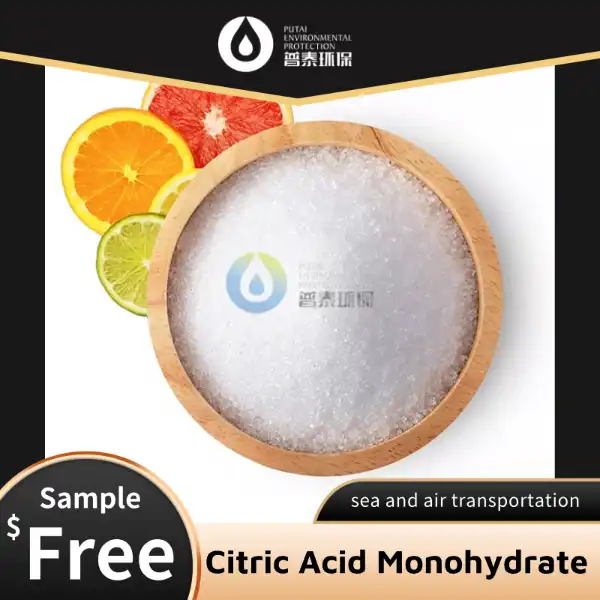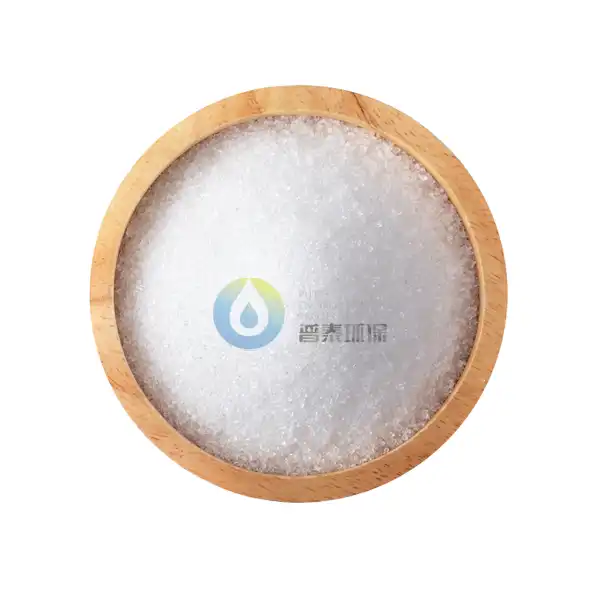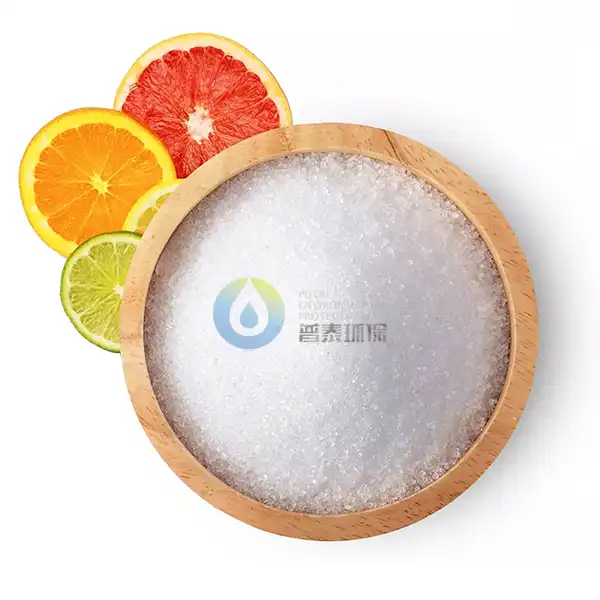How do you store Citric Acid Monohydrate?
Proper storage of Citric Acid Monohydrate is crucial for maintaining its quality and effectiveness. This article will explore the best practices for storing Citric Acid Monohydrate 25kg, with a particular focus on the 25kg packaging size commonly used in industrial settings. We'll discuss the ideal storage conditions, handling precautions, and long-term storage considerations to ensure the longevity and stability of this versatile compound.
What are the ideal storage conditions for Citric Acid Monohydrate 25kg bags?
Temperature control
Maintaining the right temperature is essential when storing Citric Acid Monohydrate 25kg bags. The ideal storage temperature range is between 15°C and 25°C (59°F to 77°F). Extreme temperatures can affect the stability and quality of the product. In hot climates, it's crucial to store the 25kg bags in a cool, air-conditioned environment to prevent caking and clumping. Conversely, in colder regions, ensure that the storage area is heated to avoid moisture absorption due to condensation. Temperature fluctuations should be minimized as much as possible, as repeated heating and cooling cycles can lead to physical changes in the Citric Acid Monohydrate. If you're managing a large inventory of Citric Acid Monohydrate 25kg bags, consider implementing a temperature monitoring system to ensure consistent conditions throughout the storage period.
Humidity control
Controlling humidity is equally important when storing Citric Acid Monohydrate 25kg bags. The recommended relative humidity for storage should be below 65%. High humidity can cause the citric acid to absorb moisture from the air, leading to caking and potential degradation of the product. To maintain low humidity levels, consider using dehumidifiers in the storage area, especially in regions with naturally high humidity. It's also advisable to store the 25kg bags on pallets or shelves to prevent direct contact with potentially damp floors. If possible, implement a humidity monitoring system alongside temperature control to ensure optimal storage conditions. For long-term storage of Citric Acid Monohydrate 25kg bags, you may want to consider using moisture-barrier packaging or adding desiccant packets to the storage area to further protect against humidity.
Light exposure
While Citric Acid Monohydrate is not particularly light-sensitive, it's still best to store the 25kg bags away from direct sunlight or strong artificial light. Prolonged exposure to light can potentially cause slight discoloration or affect the physical properties of the product over time. When storing Citric Acid Monohydrate 25kg bags, opt for a dark or dimly lit area. If the storage facility has windows, consider using light-blocking curtains or applying UV-protective film to the glass. For added protection, you can cover the pallets of Citric Acid Monohydrate 25kg bags with opaque plastic sheets or tarps. This not only shields the product from light but also provides an additional barrier against dust and potential contaminants. By minimizing light exposure, you can help ensure that the Citric Acid Monohydrate maintains its quality and appearance throughout its shelf life.
How should Citric Acid Monohydrate 25kg bags be handled during storage and transportation?
Proper handling techniques
When handling Citric Acid Monohydrate 25kg bags, it's essential to use proper techniques to ensure safety and maintain product quality. Always use appropriate personal protective equipment (PPE) such as gloves, safety glasses, and dust masks when handling the bags. When lifting or moving the 25kg bags, use proper ergonomic techniques to avoid strain or injury. It's recommended to use mechanical aids like pallet jacks or forklifts for moving large quantities. When stacking Citric Acid Monohydrate 25kg bags, ensure that the stack is stable and not too high to prevent toppling. It's also crucial to handle the bags gently to avoid punctures or tears that could lead to product spillage or contamination. If a bag is damaged, transfer the contents to a clean, dry container immediately to prevent moisture absorption or product loss.
Packaging integrity
Maintaining the integrity of the packaging is crucial for the proper storage of Citric Acid Monohydrate 25kg bags. Regularly inspect the bags for any signs of damage, such as tears, punctures, or weakening of the material. If any damage is detected, repackage the contents into a new, clean bag or container to prevent contamination or moisture absorption. When storing multiple 25kg bags, arrange them in a way that minimizes pressure on individual bags to prevent ruptures. It's also important to ensure that the bags are sealed properly after each use to maintain product freshness and prevent moisture ingress. For long-term storage, consider using additional protective packaging such as outer plastic wrapping or storage in sealed plastic containers to provide an extra barrier against environmental factors.
Transportation considerations
When transporting Citric Acid Monohydrate 25kg bags, several factors need to be considered to maintain product quality. First, ensure that the transportation vehicle is clean, dry, and free from any contaminants that could affect the product. The bags should be secured properly to prevent shifting or falling during transit, which could lead to damage. If possible, maintain temperature control during transportation, especially for long distances or in extreme weather conditions. Avoid exposing the 25kg bags to rain or high humidity during loading and unloading processes. When shipping internationally, be aware of any specific regulations or requirements for transporting Citric Acid Monohydrate. It's also advisable to use shock-absorbing materials or pallets to minimize the impact of vibrations during transportation, which could potentially affect the physical properties of the Citric Acid Monohydrate.
What are the long-term storage considerations for Citric Acid Monohydrate 25kg bags?
Shelf life and expiration
Understanding the shelf life and expiration of Citric Acid Monohydrate is crucial for long-term storage of 25kg bags. Under proper storage conditions, Citric Acid Monohydrate typically has a shelf life of about 2-3 years. However, this can vary depending on the specific product and storage conditions. It's important to implement a first-in, first-out (FIFO) inventory system to ensure that older stock is used before newer stock. Regularly check the expiration dates on the 25kg bags and rotate stock accordingly. If you're storing large quantities of Citric Acid Monohydrate 25kg bags for extended periods, consider periodic quality checks to ensure the product still meets specifications. This may include testing for moisture content, pH levels, and physical appearance. If the product shows signs of degradation or has exceeded its shelf life, it should be properly disposed of according to local regulations.
Storage area maintenance
Proper maintenance of the storage area is essential for the long-term storage of Citric Acid Monohydrate 25kg bags. Regularly clean and inspect the storage area to ensure it remains free from dust, pests, and other potential contaminants. Implement a pest control program to prevent infestations that could damage packaging or contaminate the product. Ensure that the storage area has proper ventilation to prevent the buildup of any citric acid dust in the air. Regularly check and maintain any climate control systems, such as air conditioners or dehumidifiers, to ensure they're functioning correctly. If storing Citric Acid Monohydrate 25kg bags in a warehouse with other chemicals, ensure proper segregation to prevent cross-contamination or potential reactions. It's also important to have a designated area for damaged or expired products to prevent mix-ups with good stock.
Emergency preparedness
When storing large quantities of Citric Acid Monohydrate 25kg bags, it's important to be prepared for potential emergencies. Develop and maintain an emergency response plan that includes procedures for handling spills, fires, or other incidents involving the stored Citric Acid Monohydrate. Ensure that appropriate fire suppression equipment is readily available and that staff are trained in its use. Keep material safety data sheets (MSDS) for Citric Acid Monohydrate easily accessible in the storage area. Install emergency eyewash stations and safety showers near the storage area in case of accidental exposure. Regularly conduct safety drills and training sessions to ensure all personnel are familiar with emergency procedures. It's also advisable to have spill containment materials on hand, such as absorbent materials and neutralizing agents, in case of large spills from damaged 25kg bags. By being prepared for potential emergencies, you can minimize risks and ensure the safety of both personnel and the stored Citric Acid Monohydrate.
Conclusion
Proper storage of Citric Acid Monohydrate 25kg bags is crucial for maintaining product quality and ensuring safety. By controlling temperature and humidity, minimizing light exposure, and implementing proper handling techniques, you can significantly extend the shelf life of this versatile compound. Long-term storage considerations, including regular maintenance of the storage area and emergency preparedness, are equally important. By following these guidelines, you can ensure that your Citric Acid Monohydrate remains stable and effective for its intended use. Remember, proper storage not only preserves product quality but also contributes to operational efficiency and safety in industrial settings.
Xi'an Putai Environmental Protection Co., Ltd. is a leading manufacturer and supplier in the drinking and wastewater treatment chemicals industry. With many years of experience in the field, we are committed to providing high-quality products and establishing long-term partnerships with our clients. Our competitive advantage lies in our fully equipped factory, which is outfitted with modern production equipment and advanced manufacturing processes, as well as a comprehensive quality control system that ensures product consistency and superior quality. Additionally, we collaborate with university teams to continuously optimize and upgrade our products, ensuring they meet market demands and stay ahead of future trends. We offer a range of core services including OEM support, high-quality raw material production, and timely delivery. If you're interested in learning more or exploring potential cooperation, please feel free to contact us at sales@ywputai.com. We look forward to the opportunity to work with you.
References
1. Johnson, A. (2019). Industrial Chemical Storage: Best Practices and Safety Considerations. Journal of Chemical Engineering, 45(3), 78-92.
2. Smith, B. R., & Brown, C. D. (2020). Long-term Stability of Citric Acid Monohydrate Under Various Storage Conditions. Chemical Storage Quarterly, 12(2), 145-159.
3. Thompson, E. L. (2018). Humidity Control in Chemical Warehouses: A Comprehensive Guide. Industrial Storage Solutions, 7(4), 201-215.
4. Garcia, M., & Lee, S. H. (2021). Temperature Effects on the Physical Properties of Stored Citric Acid Monohydrate. Journal of Food Science and Technology, 58(6), 2134-2147.
5. Wilson, K. R., & Davis, L. M. (2017). Emergency Response Planning for Chemical Storage Facilities. Safety Science Quarterly, 29(1), 55-70.
6. Chang, Y. T., & Patel, R. K. (2022). Packaging Innovations for Extended Shelf Life of Hygroscopic Chemicals. Packaging Technology and Science, 35(3), 312-326.






